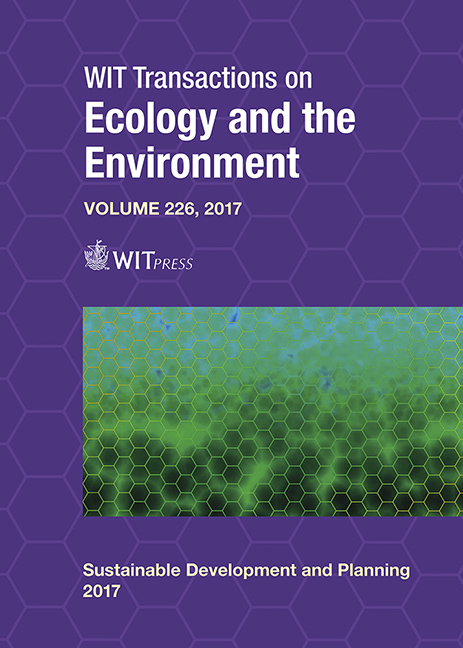BARRIERS TO A BETTER BRISTOL: DIAGNOSING CITY STRATEGIC SUSTAINABILITY CHALLENGES USING SYSTEMS, CO-PRODUCTION AND INTERDISCIPLINARY APPROACHES
Price
Free (open access)
Transaction
Volume
226
Pages
12
Page Range
285 - 296
Published
2017
Size
441 kb
Paper DOI
10.2495/SDP170251
Copyright
WIT Press
Author(s)
EMILY PRESTWOOD, THOMAS CALVERT, WILLIAM CLAYTON, JAMES LONGHURST, HELEN MANCHESTER, GRAHAM PARKHURST, GES ROSENBERG, COLIN TAYLOR, IAN TOWNSEND
Abstract
As European Green Capital 2015 and one of the Rockefeller 100 Resilient Cities, Bristol can legitimately claim to be on the “frontline” of urban sustainability, continually challenging itself to transform into a place where citizens and organisations work together to create wellbeing. Yet the development pathway to achieving this transformation, remains characterised by continuing inequalities in social inclusion, health outcomes and access to transport, despite aspirational goals envisioned by the city’s leaders. The Urban ID (Integrated Diagnostic) project aims to address this, with the intention that the approach will be replicable in different contexts to assist in developing policy strategies at all levels. The project partnership of local authorities, partnerships, businesses, citizens, and universities is creating a “diagnostic approach” to identify and address the challenges and barriers faced in achieving a strategic sustainability vision. The diagnostic approach is being developed through participatory research using systems, co-creation and learning approaches between a diverse range of stakeholders, in combination with the examination of relevant information including city data, expert opinion, and policy documents. A common shortcoming of projects addressing sustainability in a holistic way is that individual issues are investigated without consideration of the interdependencies between them and with a ‘business-as-usual’ mindset. To address these shortcomings, Urban ID focusses on several local case studies as well as a city-wide sustainability community case study. These are examined through the ‘lenses’ of mobility and accessibility, carbon neutrality, health and happiness, and equality and inclusion. As a result, all issues in a case study area are examined, to better understand the links between them. This paper provides an overview of the Urban ID concept and development of the diagnostic approach, and reports the initial findings and outcomes from a first-round of engagement activities in the Bristol Green Capital Partnership (BGCP) sustainability community case study, co-produced with BGCP CIC.
Keywords
sustainability, systems, co-production, carbon neutral, mobility, accessibility, health, happiness, inclusion





